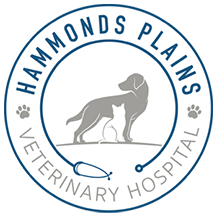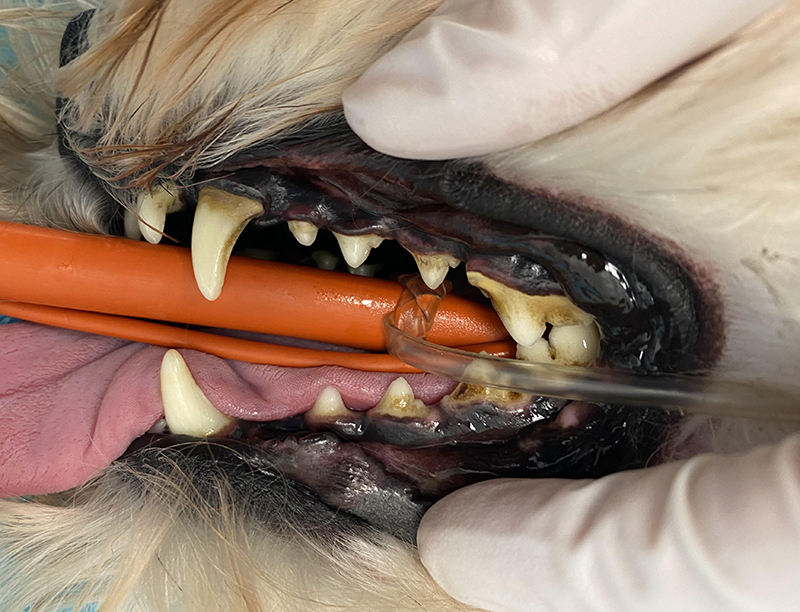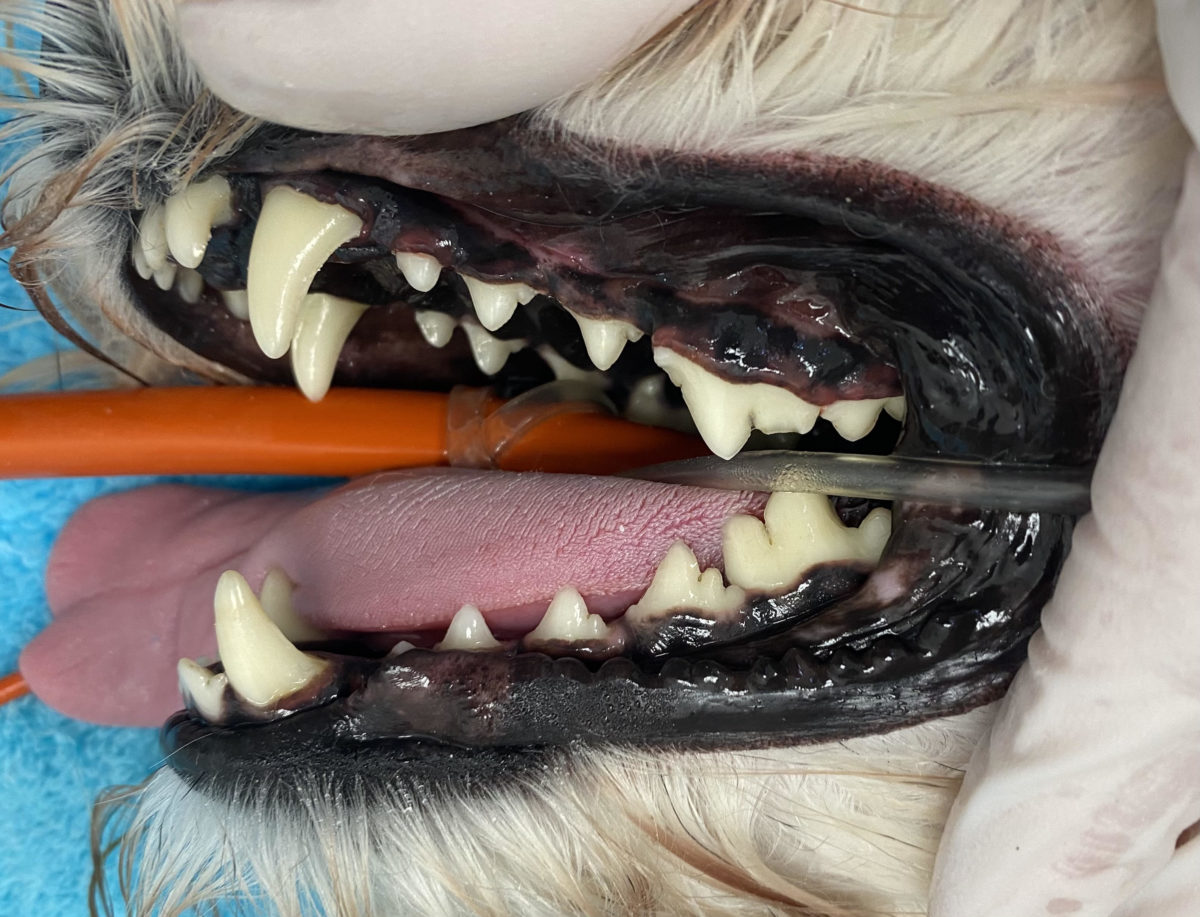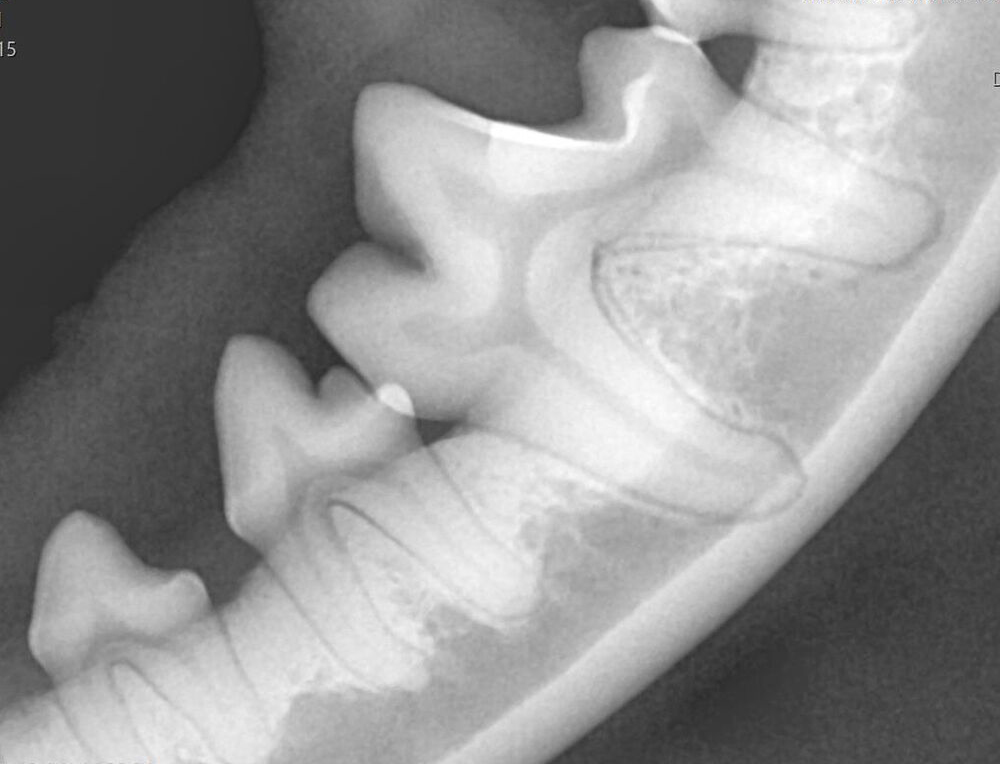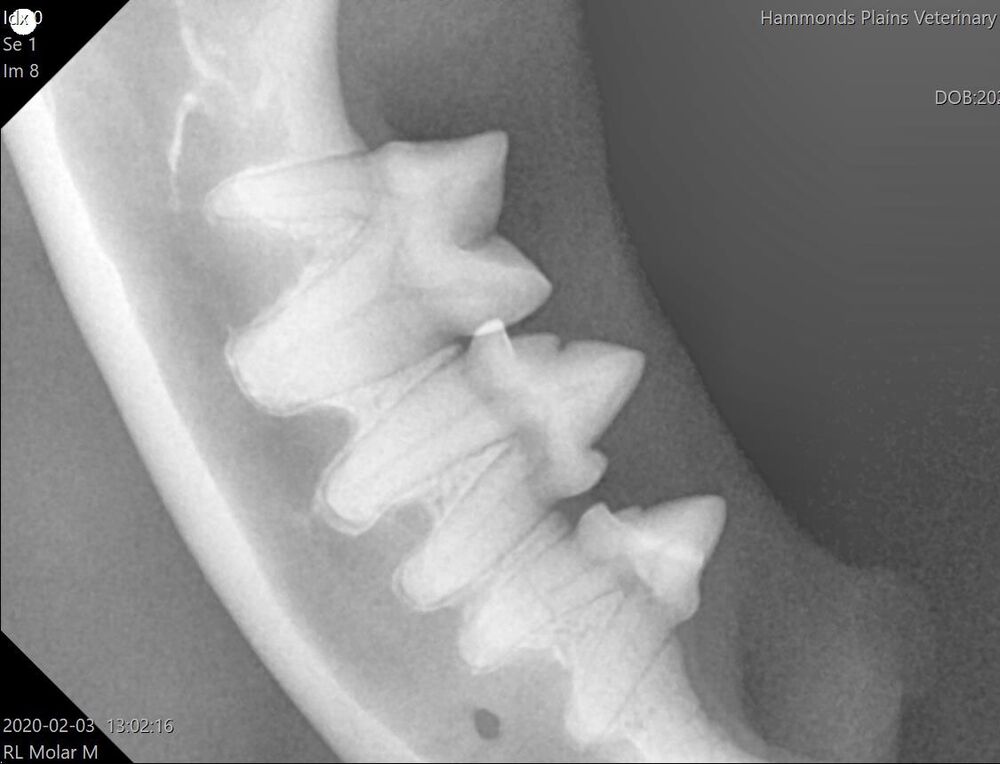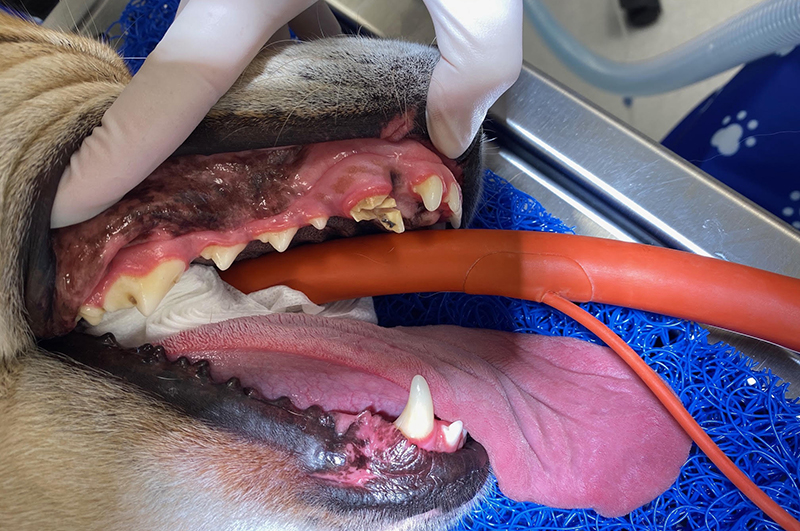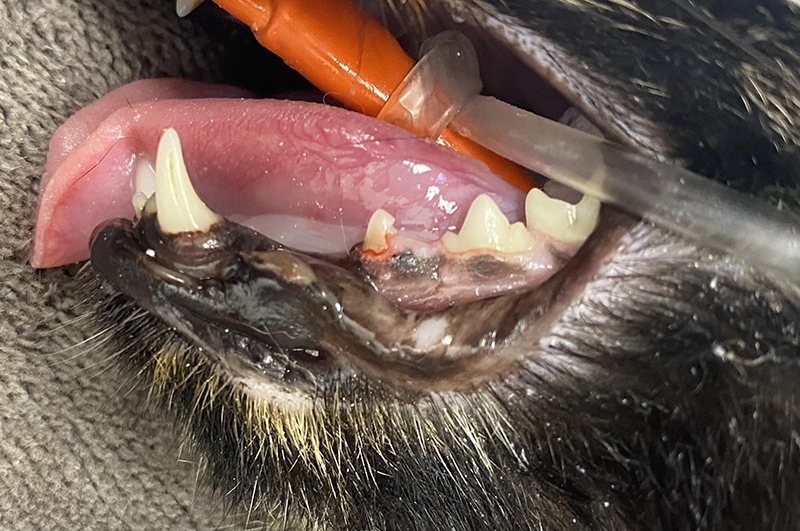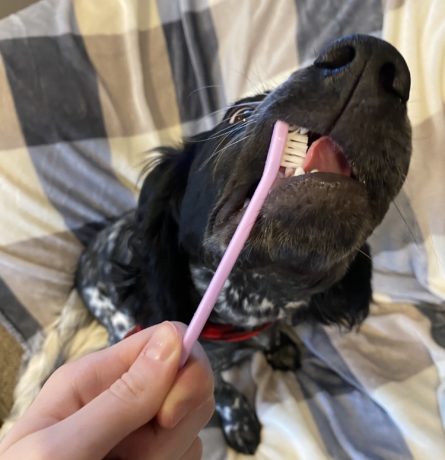
Good oral health is important for your pet, just as it is for us.
Could you imagine what your mouth would feel like if you never brushed your teeth or went for regular check-ups at your dentist?
It is estimated that approximately 70% of pets can have some form of dental disease by the age of 3 years. Annual examinations with your veterinarian are a great way to have your pet’s mouth evaluated and are also very important in identifying any dental issues and/or the need for dental treatment.
Oral Home Care
Oral care starts at home. This can be very beneficial to reduce plaque build-up and gingivitis in your pet’s mouth.
There are a number of options available, such as:
- Teeth brushing
- Dental diets
- Dental chews
- Water additives
If you have any questions about how you can help keep your pet’s mouth healthy at home, please contact us!
Contact Us TodayDental Cleanings
Dental cleanings are performed under general anesthetic. This is an important aspect of the cleaning in order to ensure it is performed properly and safely. An ultrasonic scaler is used to clean the teeth and remove plaque and tartar both above and below the gum line. During this time a thorough, oral exam and dental radiographs are performed to identify any abnormalities.
- Before
- After
Dental Radiographs
Did you know that some teeth in your pet’s mouth have three roots? Did you also know that 70% of dental disease can be below the gum line? That is why dental radiographs are so important in order to examine all aspects of the teeth. A lot of abnormalities can be picked up with dental radiographs that cannot be diagnosed with just visual examination. Below are some examples:
Dental Surgery and Extractions
Dental surgery and extractions are also performed under general anesthetic. There are a number of reasons that dental surgery and extractions may be needed for your pet. Some of these include:
- Fractured teeth
- Abscessed teeth
- Teeth affected by dental disease
- Oral growths or masses
- Resorptive lesions
- Fracture
- Resorptive Lesion
